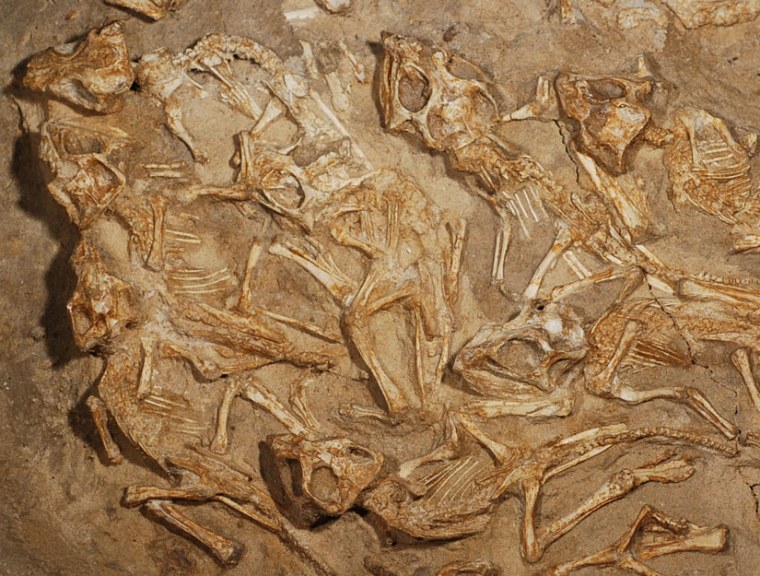
The remains of dinosaurs found in their nest in Mongolia. Researchers believe sand entombed the dinosaur family while the members were still alive.Dr. Kh. Tsogtbaatar
A 70-million-year-old nest of the dinosaur Protoceratops andrewsi has been found with evidence that 15 juveniles were once inside it, according to a paper in the latest Journal of Paleontology.
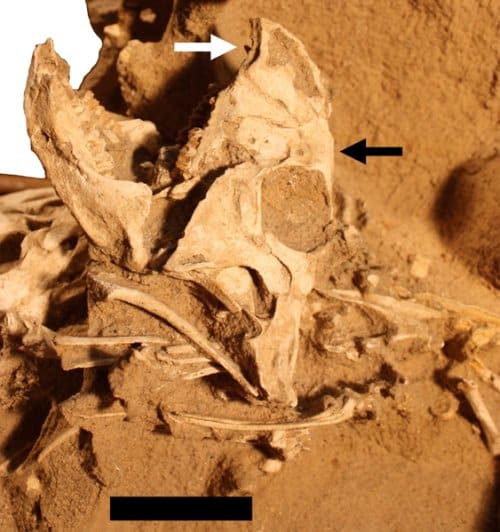
While large numbers of eggs have been associated with other dinosaurs, such as the meat-eating Oviraptor or certain duck-billed hadrosaurs, finding multiple juveniles in the same dino nest is quite rare.
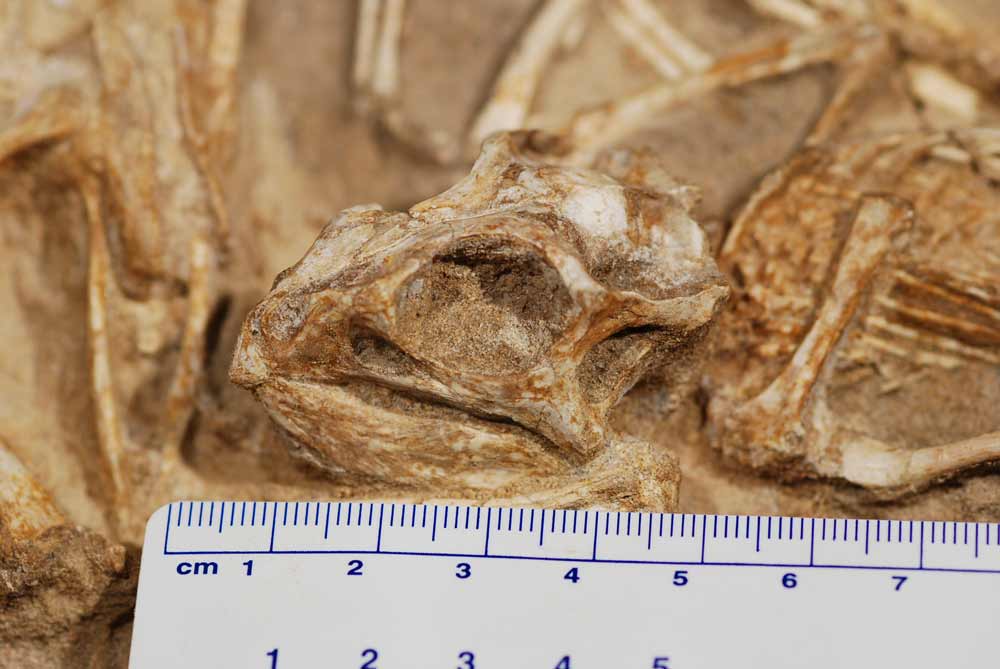
“I, for one, cannot think of another dinosaur specimen that preserves 15 juveniles at its nest in this way,” lead author David Fastovsky told Discovery News.
The researchers conclude that the 15 dinosaurs all show juvenile characteristics. These include short snouts, proportionately large eyes, and an absence of adult characteristics, such as the prominent horns and large frills associated with adults of this species. At least 10 of the 15 fossil sets are complete.

The nest and its contents imply that Protoceratops juveniles remained and grew in their nest during at least the early stages of postnatal development. The nest further implies that parental care was provided.
The large number of offspring, however, also suggests that juvenile dinosaur mortality was high, not only from predation, but also from a potentially stressful environment.
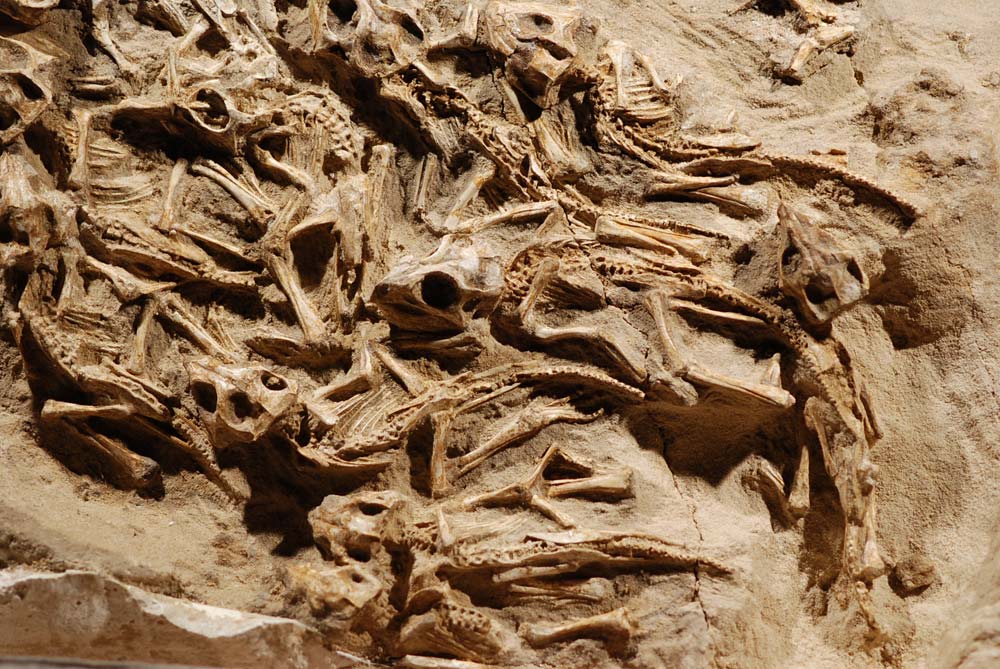
Given the chances then of literally biting the (sand) dust or becoming dinner, it’s no wonder that some small dinosaurs had so many kids.
“This story certainly isn’t your parents’ dinosaurs-living-in-the-lush-Cretaceous-steaming-jungles that was in vogue a generation or two ago,” Fastovsky said. “We now know that dinosaurs lived everywhere and did just about everything terrestrial.”
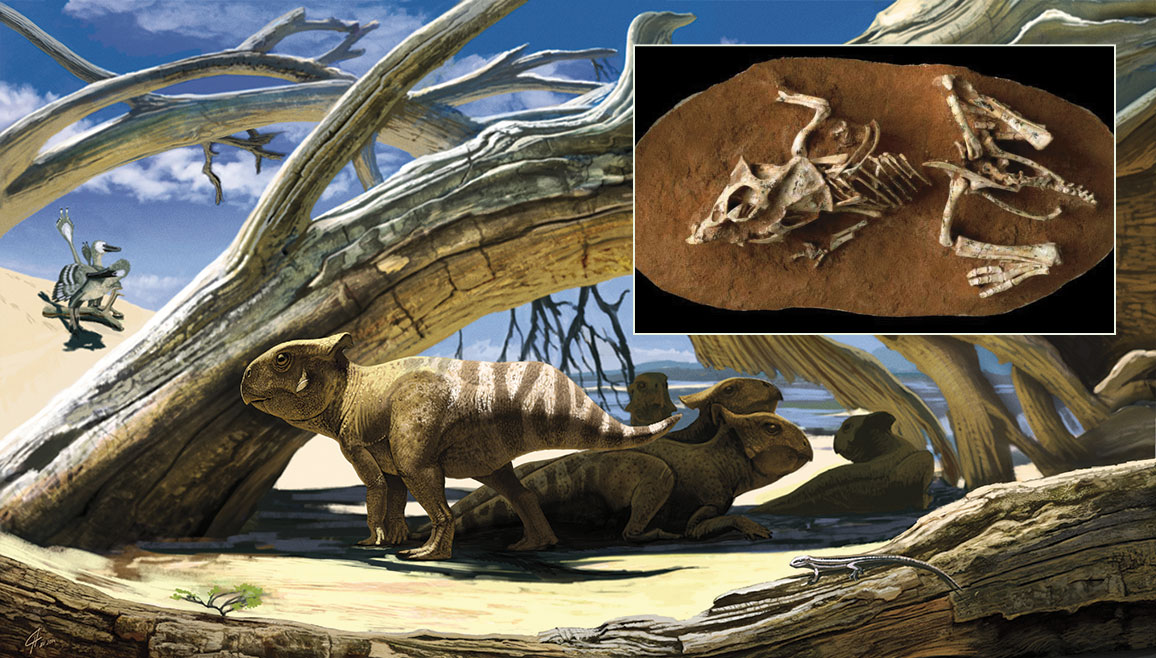
The nest and its dinosaur family contents are currently housed at the Paleontological Center of the Mongolian Academy of Sciences, Ulan Baatar, Mongolia.